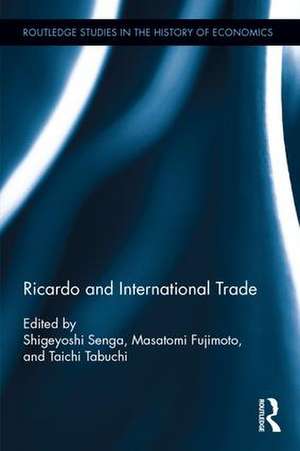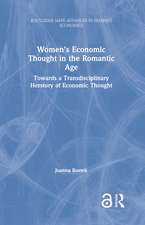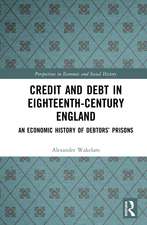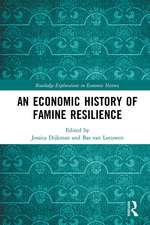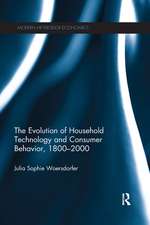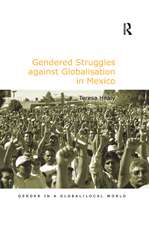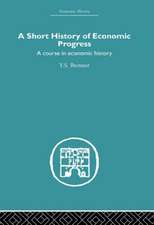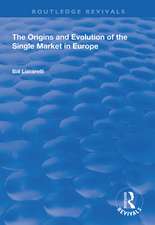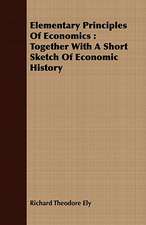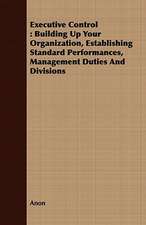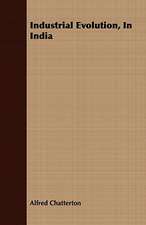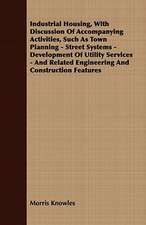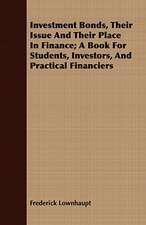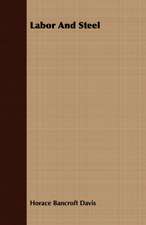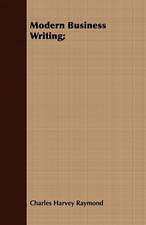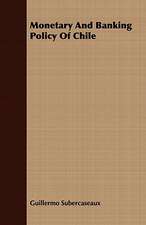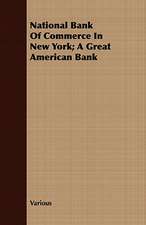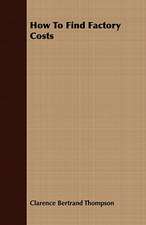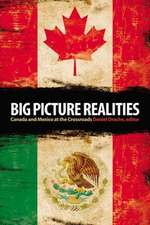Ricardo and International Trade: Routledge Studies in the History of Economics
Editat de Shigeyoshi Senga, Masatomi Fujimoto, Taichi Tabuchien Limba Engleză Hardback – 22 mai 2017
This book also features contributions from the Japanese perspective and compares Ricardian theories with those of his contemporaries, such as Malthus, Torrens and J. S. Mill. This book will be a valuable reference for researchers and scholars with interests in history of economic thought and international economics.
| Toate formatele și edițiile | Preț | Express |
|---|---|---|
| Paperback (1) | 261.14 lei 6-8 săpt. | |
| Taylor & Francis – 24 mai 2019 | 261.14 lei 6-8 săpt. | |
| Hardback (1) | 765.43 lei 6-8 săpt. | |
| Taylor & Francis – 22 mai 2017 | 765.43 lei 6-8 săpt. |
Din seria Routledge Studies in the History of Economics
-
 Preț: 370.72 lei
Preț: 370.72 lei -
 Preț: 302.54 lei
Preț: 302.54 lei - 8%
 Preț: 392.82 lei
Preț: 392.82 lei -
 Preț: 311.28 lei
Preț: 311.28 lei - 9%
 Preț: 1003.10 lei
Preț: 1003.10 lei -
 Preț: 665.68 lei
Preț: 665.68 lei - 9%
 Preț: 935.39 lei
Preț: 935.39 lei -
 Preț: 384.63 lei
Preț: 384.63 lei -
 Preț: 280.74 lei
Preț: 280.74 lei -
 Preț: 326.99 lei
Preț: 326.99 lei -
 Preț: 311.91 lei
Preț: 311.91 lei -
 Preț: 214.15 lei
Preț: 214.15 lei -
 Preț: 310.43 lei
Preț: 310.43 lei -
 Preț: 326.82 lei
Preț: 326.82 lei -
 Preț: 308.97 lei
Preț: 308.97 lei -
 Preț: 324.46 lei
Preț: 324.46 lei -
 Preț: 388.22 lei
Preț: 388.22 lei -
 Preț: 392.71 lei
Preț: 392.71 lei - 26%
 Preț: 850.91 lei
Preț: 850.91 lei - 27%
 Preț: 995.39 lei
Preț: 995.39 lei - 18%
 Preț: 1005.01 lei
Preț: 1005.01 lei - 18%
 Preț: 1002.60 lei
Preț: 1002.60 lei - 26%
 Preț: 1046.46 lei
Preț: 1046.46 lei - 18%
 Preț: 1280.31 lei
Preț: 1280.31 lei - 18%
 Preț: 1055.51 lei
Preț: 1055.51 lei - 18%
 Preț: 1055.51 lei
Preț: 1055.51 lei - 28%
 Preț: 987.72 lei
Preț: 987.72 lei - 25%
 Preț: 824.17 lei
Preț: 824.17 lei - 18%
 Preț: 1061.93 lei
Preț: 1061.93 lei - 18%
 Preț: 716.32 lei
Preț: 716.32 lei - 18%
 Preț: 1006.07 lei
Preț: 1006.07 lei - 18%
 Preț: 1069.92 lei
Preț: 1069.92 lei - 12%
 Preț: 342.67 lei
Preț: 342.67 lei - 26%
 Preț: 991.34 lei
Preț: 991.34 lei - 18%
 Preț: 1056.00 lei
Preț: 1056.00 lei - 18%
 Preț: 1076.53 lei
Preț: 1076.53 lei - 18%
 Preț: 698.08 lei
Preț: 698.08 lei - 22%
 Preț: 332.02 lei
Preț: 332.02 lei - 18%
 Preț: 1169.78 lei
Preț: 1169.78 lei - 18%
 Preț: 1059.84 lei
Preț: 1059.84 lei - 30%
 Preț: 852.88 lei
Preț: 852.88 lei - 25%
 Preț: 830.10 lei
Preț: 830.10 lei - 18%
 Preț: 1125.78 lei
Preț: 1125.78 lei - 18%
 Preț: 1062.98 lei
Preț: 1062.98 lei - 18%
 Preț: 847.96 lei
Preț: 847.96 lei - 18%
 Preț: 953.01 lei
Preț: 953.01 lei - 18%
 Preț: 1168.76 lei
Preț: 1168.76 lei
Preț: 765.43 lei
Preț vechi: 1028.13 lei
-26% Nou
Puncte Express: 1148
Preț estimativ în valută:
146.46€ • 152.62$ • 121.27£
146.46€ • 152.62$ • 121.27£
Carte tipărită la comandă
Livrare economică 03-17 aprilie
Preluare comenzi: 021 569.72.76
Specificații
ISBN-13: 9781138122451
ISBN-10: 1138122459
Pagini: 286
Ilustrații: 48
Dimensiuni: 156 x 234 x 22 mm
Greutate: 0.52 kg
Ediția:1
Editura: Taylor & Francis
Colecția Routledge
Seria Routledge Studies in the History of Economics
Locul publicării:Oxford, United Kingdom
ISBN-10: 1138122459
Pagini: 286
Ilustrații: 48
Dimensiuni: 156 x 234 x 22 mm
Greutate: 0.52 kg
Ediția:1
Editura: Taylor & Francis
Colecția Routledge
Seria Routledge Studies in the History of Economics
Locul publicării:Oxford, United Kingdom
Public țintă
Postgraduate and UndergraduateCuprins
Introduction: Ricardo’s international trade theory 200 years on (Taichi Tabuchi, Masatomi Fujimoto, and Shigeyoshi Senga)
Part I: Ricardo's 'Four Magic Numbers' and Beyond
1. A Plain Man’s Guide to David Ricardo’s Principle of Comparative Advantage (Heinz D. Kurz)
2. Ricardo and International Trade Theory (Roy J. Ruffin)
3. David Ricardo's Trade Theory: Anticipations and Later Developments (Andrea Maneschi)
4. Yukizawa’s Interpretation of Ricardo’s ‘Theory of Comparative Costs’ (Taichi Tabuchi)
5. The Ricardian System: A Graphical Exposition (Neri Salvadori and Rodolfo Signorino)
Part II: Money and/or International Values
6. A Calm Investigation into Mr Ricardo's Principles of International Trade (Gilbert Faccarello)
7. Money and Ricardo’s "Magic Numbers" (Jérôme de Boyer des Roches)
8. Foreign Trade, International Values, and Gains from Trade: Ricardo, Pennington, Whewell and John Stuart Mill (Christian Gehrke)
9. Equilibrium in the International Economy: Ricardo’s Specie Flow Mechanism ―Logic and Development (Shigehiro Naruse)
10. On Ricardo's Two Rectification Problems (Yoshinobu Shiozawa)
Part III: Controversies over Ricardian International Trade Theory and Policy
11. Foreign Trade, Profits, and Growth: A Comparative Study of Ricardo and Malthus (Atsushi Masunaga)
12. J. S. Mill’s Idea of International Trade: The Inheritance from Ricardo’s Free Trade and Torrens’ Reciprocity (Masatomi Fujimoto)
13. Ricardo and the Committee on Agricultural Distress of 1821 (Masaharu Hattori)
Part I: Ricardo's 'Four Magic Numbers' and Beyond
1. A Plain Man’s Guide to David Ricardo’s Principle of Comparative Advantage (Heinz D. Kurz)
2. Ricardo and International Trade Theory (Roy J. Ruffin)
3. David Ricardo's Trade Theory: Anticipations and Later Developments (Andrea Maneschi)
4. Yukizawa’s Interpretation of Ricardo’s ‘Theory of Comparative Costs’ (Taichi Tabuchi)
5. The Ricardian System: A Graphical Exposition (Neri Salvadori and Rodolfo Signorino)
Part II: Money and/or International Values
6. A Calm Investigation into Mr Ricardo's Principles of International Trade (Gilbert Faccarello)
7. Money and Ricardo’s "Magic Numbers" (Jérôme de Boyer des Roches)
8. Foreign Trade, International Values, and Gains from Trade: Ricardo, Pennington, Whewell and John Stuart Mill (Christian Gehrke)
9. Equilibrium in the International Economy: Ricardo’s Specie Flow Mechanism ―Logic and Development (Shigehiro Naruse)
10. On Ricardo's Two Rectification Problems (Yoshinobu Shiozawa)
Part III: Controversies over Ricardian International Trade Theory and Policy
11. Foreign Trade, Profits, and Growth: A Comparative Study of Ricardo and Malthus (Atsushi Masunaga)
12. J. S. Mill’s Idea of International Trade: The Inheritance from Ricardo’s Free Trade and Torrens’ Reciprocity (Masatomi Fujimoto)
13. Ricardo and the Committee on Agricultural Distress of 1821 (Masaharu Hattori)
Recenzii
"The endeavor of this edited volume is promising. It includes contributions by many long-standing Ricardo scholars. Encouragingly, it opens the English-speaking world to the rich tradition of the study of Ricardo in Japan…" — Journal of the History of Economic Thought, Volume 41, Number 3, September 2019
Descriere
The book’s interpretation brings fresh insights into and new developments on the Ricardian international trade theory by examining the true meaning of the 'four magic numbers'. By putting together theories of comparative advantage and international money, the book attempts to elucidate Ricardo's international trade theory in the real world.
This book also features contributions from the Japanese perspective, and compares Ricardian theories with those of his contemporaries, such as Malthus, Torrens and J. S. Mill. This book will be a valuable reference for researchers and scholars with interests in the history of economic thought and international economics.
This book also features contributions from the Japanese perspective, and compares Ricardian theories with those of his contemporaries, such as Malthus, Torrens and J. S. Mill. This book will be a valuable reference for researchers and scholars with interests in the history of economic thought and international economics.
